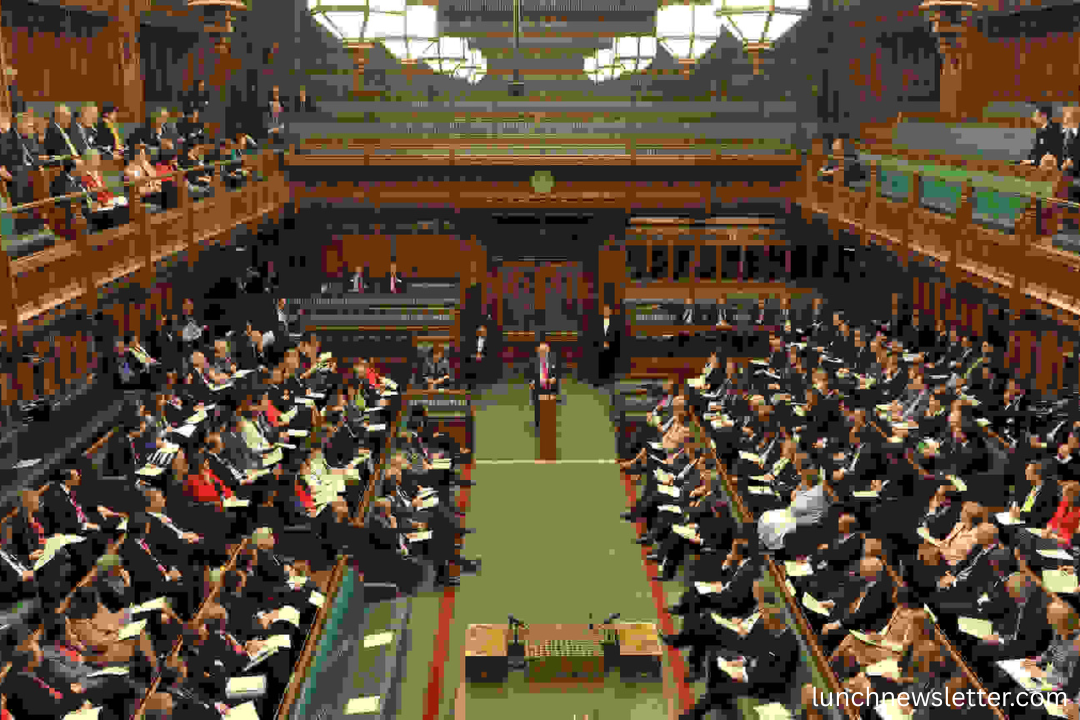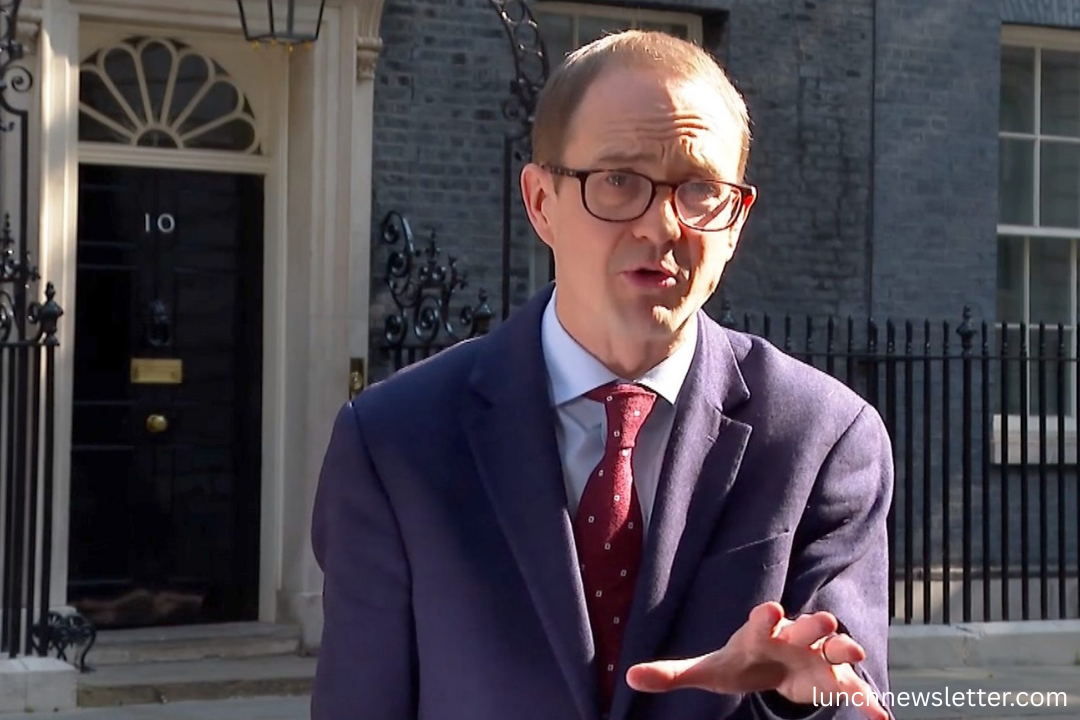Chris Mason, the BBC’s Political Editor, is known for his ability to simplify complex political topics. In one of his most engaging segments, he took on the ambitious task of summarizing 60 years of UK immigration history in just 60 seconds. This quick-fire explanation has resonated with audiences not only because of its clarity but also because of the growing relevance of immigration in British politics and society.
This article explores the key takeaways from Chris Mason’s 1-minute immigration recap, placing it in the broader context of UK immigration policy, public reaction, and historical trends.
Chris Mason’s Approach to UK Immigration
Chris Mason brings a journalist’s sharpness and a citizen’s curiosity to his reporting. In his brief but informative summary, he outlines the major immigration waves that shaped modern Britain—from the post-war era to the current debates around Brexit and asylum seekers.
By focusing on key turning points, Chris Mason effectively communicated decades of immigration history, making the topic accessible to everyday viewers and readers alike.
Immigration in the UK – A Historical Perspective
Britain’s immigration story didn’t begin in recent decades. It has roots that go back to the end of World War II. Here are the significant periods Chris Mason highlighted:
Post-War Labor Shortages
Following World War II, the UK faced a significant labor shortage. To rebuild the economy, the government invited people from Commonwealth countries—especially from the Caribbean, India, Pakistan, and later Africa. This marked the beginning of large-scale non-European immigration.
The 1970s and 1980s – New Controls
As immigration increased, so did public and political scrutiny. New laws in the 1970s and 80s imposed stricter controls, particularly on non-white immigrants. Despite this, immigration continued due to family reunification policies and growing demand in the job market.
European Migration and the EU
After joining the European Economic Community (later the European Union), the UK opened its doors to workers from across Europe. When countries like Poland and Romania joined the EU, the UK saw a surge in migration from Eastern Europe.
Brexit and New Policies
Chris Mason emphasized that immigration became a central issue during the Brexit campaign. Promises to “take back control” of borders led to a new points-based immigration system after the UK officially left the EU.
Key Takeaways from Chris Mason’s Recap
In just 60 seconds, Chris Mason managed to cover critical events that shaped public perception and policy around immigration. Some of his major points include:
- Immigration is not new to the UK—it has evolved.
- Economic needs and political pressures have influenced who gets to come in.
- Immigration has played a vital role in shaping modern British culture, economy, and demographics.
Why Chris Mason’s Recap Resonated
Chris Mason’s summary became so impactful because of its timing and clarity. As debates around asylum seekers, refugee boats, and border control continue, the British public seeks simplified yet accurate explanations of complex issues.
Chris Mason struck a balance between factual history and political relevance, helping viewers understand how current immigration concerns are rooted in decades of policy and social change.
The Role of Immigration in UK Politics

Immigration has long been a polarizing issue in the UK. Political parties use immigration data and public sentiment to influence elections and craft policies. Chris Mason captured this dynamic in his recap by showing how immigration trends have often coincided with political shifts.
For instance:
- The rise of UKIP and Brexit aligned with concerns over EU migration.
- Post-Brexit, the Conservative government introduced a points-based immigration system.
- Labour has often advocated for more compassionate immigration policies, focusing on integration and human rights.
The Impact of Media on Immigration Narratives
As a respected journalist, Chris Mason understands the media’s power in shaping public discourse. His reporting style avoids sensationalism, focusing instead on data and historical context. In a media landscape often dominated by extremes, his concise explanation helped depoliticize a contentious topic.
This objective approach is essential in an era where misinformation and emotion can easily distort public understanding.
Public Reaction to Chris Mason’s Immigration Recap
Viewers widely praised Chris Mason for his ability to explain six decades of immigration history in a digestible and balanced way. On social media, many users noted that the summary helped them understand the complexity behind current headlines.
Teachers, political commentators, and even immigration lawyers shared the segment, highlighting its usefulness as an educational tool. In schools and universities, educators have used Chris Mason’s recap to introduce students to immigration policy and British history.
Why Simplified Explanations Matter
Complex subjects like immigration often overwhelm the general public. Government documents, academic papers, and policy analyses can be dense and inaccessible. That’s where journalists like Chris Mason make a difference.
His 60-second summary isn’t just a fun exercise—it’s a model for engaging the public with critical civic topics. In a time of information overload, brevity and accuracy matter more than ever.
What Chris Mason’s Work Says About Modern Journalism
Chris Mason has built a reputation for clarifying confusion. As BBC’s Political Editor, he covers subjects ranging from elections to international relations. His immigration recap reflects a broader trend in journalism—explaining the “why” behind the news, not just the “what.”
Through thoughtful storytelling, Chris Mason connects historical events to present-day debates, helping viewers understand not only what’s happening but why it matters.
The Future of UK Immigration Policy
While Chris Mason’s recap looked backward, it also encouraged reflection on the future. The UK is now navigating a post-Brexit world, dealing with new migration routes, global labor shortages, and humanitarian crises.
Emerging questions include:
- How will the UK balance its labor needs with border control?
- What role will climate refugees play in future migration?
- Can the UK maintain international commitments while controlling domestic borders?
These are the issues that Chris Mason and others will continue to explore in their reporting.
Frequently Asked Questions (FAQ’s)
Who is Chris Mason?
Chris Mason is the BBC’s Political Editor. He is known for delivering clear, concise, and informative political coverage. He has earned respect for making complex issues like immigration easy for the general public to understand.
What is Chris Mason’s 1-minute UK immigration recap?
It’s a brief video segment where Chris Mason summarizes 60 years of UK immigration history in just 60 seconds, highlighting key immigration waves and political changes in a highly digestible format.
Why did Chris Mason create a 1-minute immigration summary?
Chris Mason created the summary to provide quick context on how immigration has evolved in the UK, especially in light of ongoing political debates and public confusion about the topic.
What immigration trends did Chris Mason highlight?
He discussed post-WWII Commonwealth immigration, EU migration following expansion, and recent shifts due to Brexit and the new points-based immigration system.
Is Chris Mason’s summary based on accurate data?
Yes, Chris Mason is known for fact-based reporting. His immigration recap is rooted in historical events and policy changes that are widely documented and recognized by experts.
How can I watch Chris Mason’s 1-minute recap?
The segment was originally aired on BBC News and may be available on the BBC website or their official YouTube and social media platforms. Searching “Chris Mason 1-minute UK immigration” should help locate it.
Why is Chris Mason’s recap considered necessary?
It helps viewers understand the historical and political context of immigration in the UK without needing to read lengthy reports or academic papers. It’s educational and accessible.
What impact has Chris Mason had on public understanding of immigration?
Chris Mason has made immigration history more approachable for a broad audience, improving civic awareness and encouraging informed discussions on immigration and policy.
Conclusion
Though only a minute long, Chris Mason’s immigration recap offers more than a timeline—it’s a reminder of the power of clear communication. In an increasingly polarized world, the ability to distill decades of complex issues into an understandable message is both rare and valuable. Chris Mason uses his platform to educate, inform, and provoke thought without inflaming tension. His one-minute summary of UK immigration is a case study in effective journalism, proving that even in sixty seconds, history can come alive.
